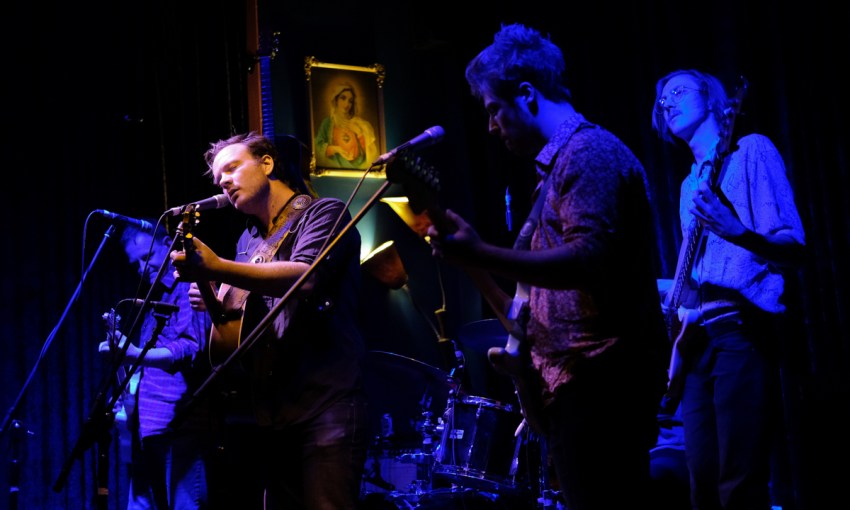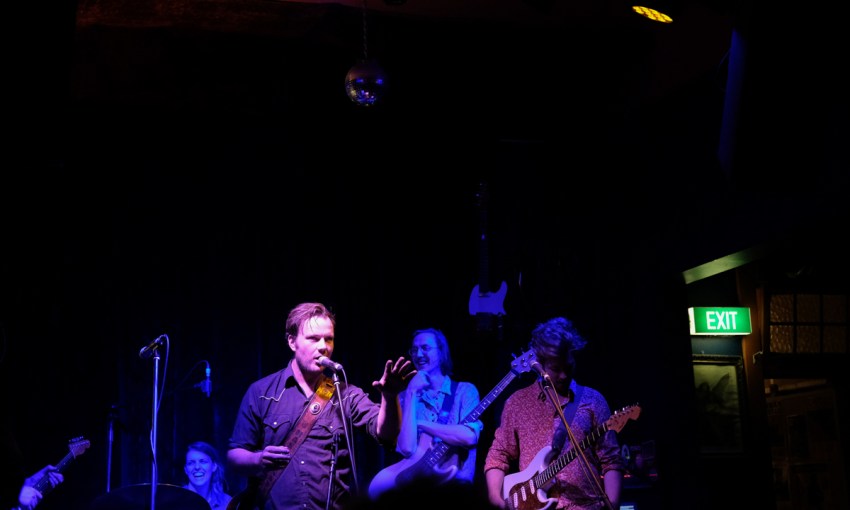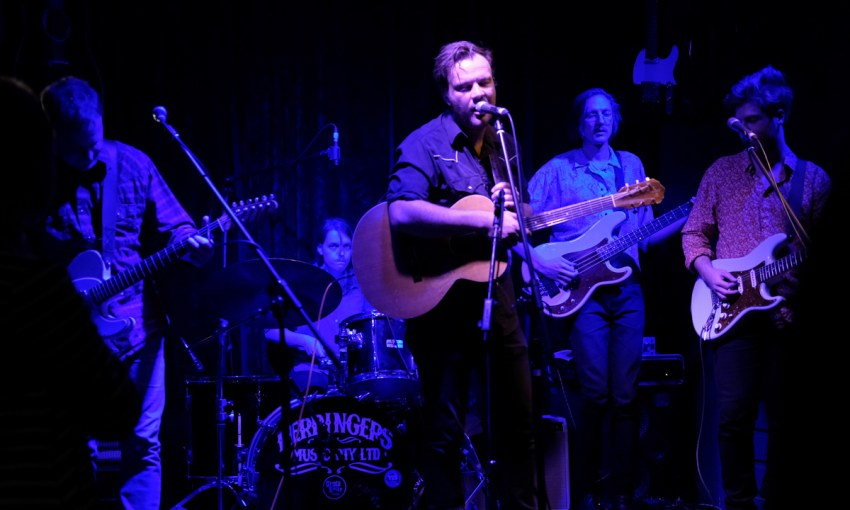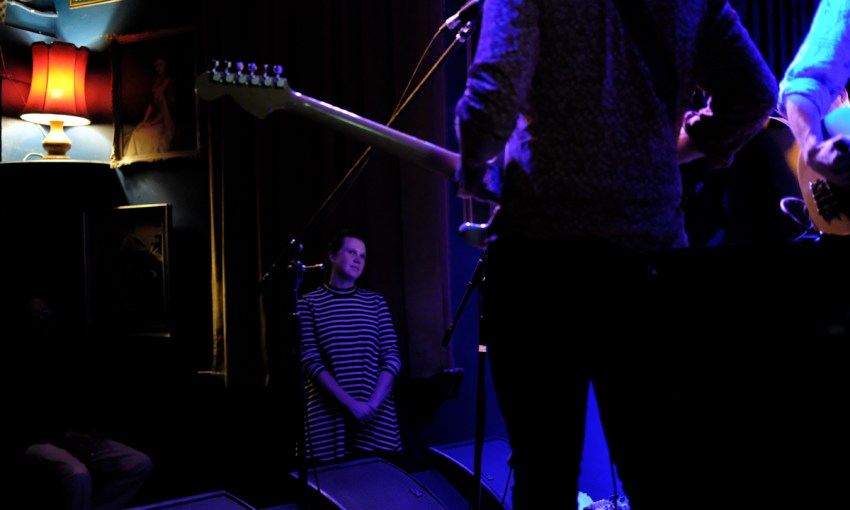By starting Adelaide’s first live music podcast, The Family Bushdance, Max McHenry is creating both a time capsule of Adelaide’s live music scene, and a potential fix for the cash-strapped industry.
Introducing The Family Bushdance
It should come as no surprise that Max McHenry, the everyday alter ego of Max Savage, leader of the famed False Idols, is a big fan of radio. Like many musicians, audio airwaves have been a formative influence on his musical career.
More than shaping his musical sensibility though, Max’s history as a long-time listener has also inspired his most recent venture, The Family Bushdance – Adelaide’s first live music podcast.
The Family Bushdance is available wherever you get good podcasts, with three episodes released and a fourth on the way soon.
Keep an eye on the Bushdance Facebook page for updates and information on how you can attend future recordings.
“I really love radio… it’s quite an intimate form to be a part of,” Max says.
“I grew up listening to things like A Prairie Home Companion and The Daily Planet and The Music Show, and all of those things sort of leant themselves to that, so I always wanted to do something involving radio.”
Each episode of The Family Bushdance brings together a different roster of Adelaide musicians for an hour of rolling live music, emceed by Max and backed by the Bushdance Band, made up of Kyrie Anderson, Kiah Gossner, Django Rowe, and Tom Kneebone.
“It’s a podcast of a live show, and that’s what a live show feels like when you go see it. That’s what a jam night feels like when you go to one and when you play in one,” Max says.
“I do most of the talking on the show, and I generally try to think long and hard about exactly what I’m going to say a few weeks in advance to make sure I don’t make too much of a fool of myself.
“It’s a pretty beautiful experience to be able to bring together a whole lot of really dear, dear friends, and people that I respect and admire, and to make music with them.”
As much as The Family Bushdance is a musical experience, for Max, it is also a response to the current era music industry, which, he says, has devalued music to the point where it makes no financial sense to release music traditionally.
“I guess the genesis of [The Family Bushdance] started a couple of years ago, just because I made a record that cost quite a lot of money to make, and the process of selling it involved essentially devaluing it to such a point that the amount of units that I would have to sell of that record were so great that I was guaranteed to run it at a loss,” Max says.
“Individual consumers can’t pay for music, which is how it used to run, and we’ve had a brief interim of government subsidising it, and now we’re at a point where artists are paying for it, and it doesn’t quite work.
“The idea of the Bushdance is to… create something that may be able to garner sponsorship… so individuals aren’t paying for it, musicians aren’t paying for it, the government’s not paying for it, but a brand of chips, or whatever you want, is paying for it.
“It’s an economic experiment, because the type of value that we assign to music in the 21st century is actually divorced from the cost of what we spend to actually produce it.”
That’s not to say that the experiment doesn’t have a price of its own, with set up, recording and mixing costs for each episode totaling over $1,000, according to Max, but as sponsors come on board, he hopes The Family Bushdance will become an avenue for Adelaide musicians to make a living from their art.
“The hope is that eventually we will be able to create something that can pay people really well, that it’s something that people get reimbursed the value of their labour,” Max says.
“I think lots of people in our community really appreciate that somebody is doing something like this, and I think it was only a matter of time. If we hadn’t done it someone else would have.
“We’ve got a very healthy, supportive live music community here, and… what has been really lovely has been to document what’s going on and some of the people that are there.”







